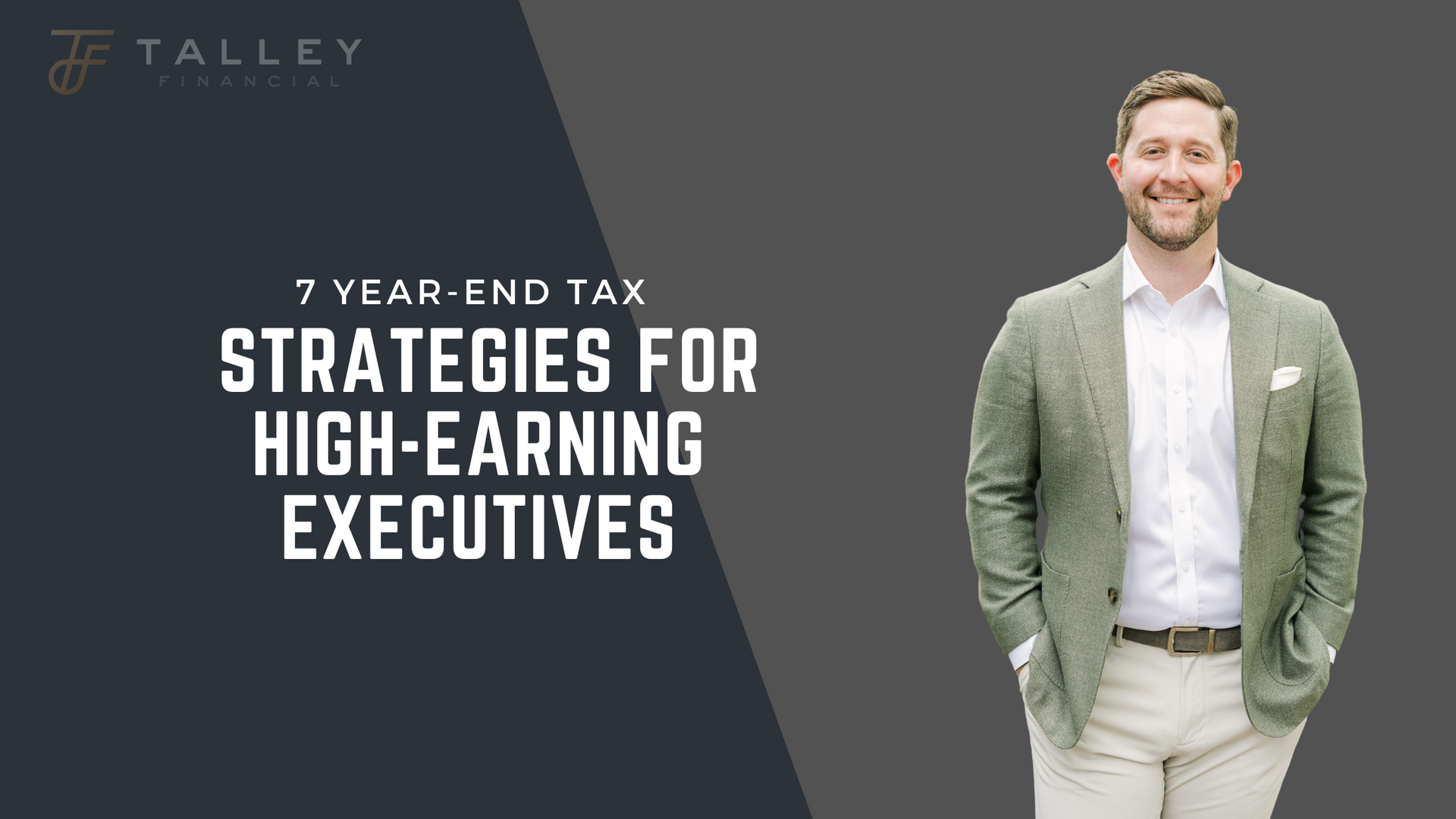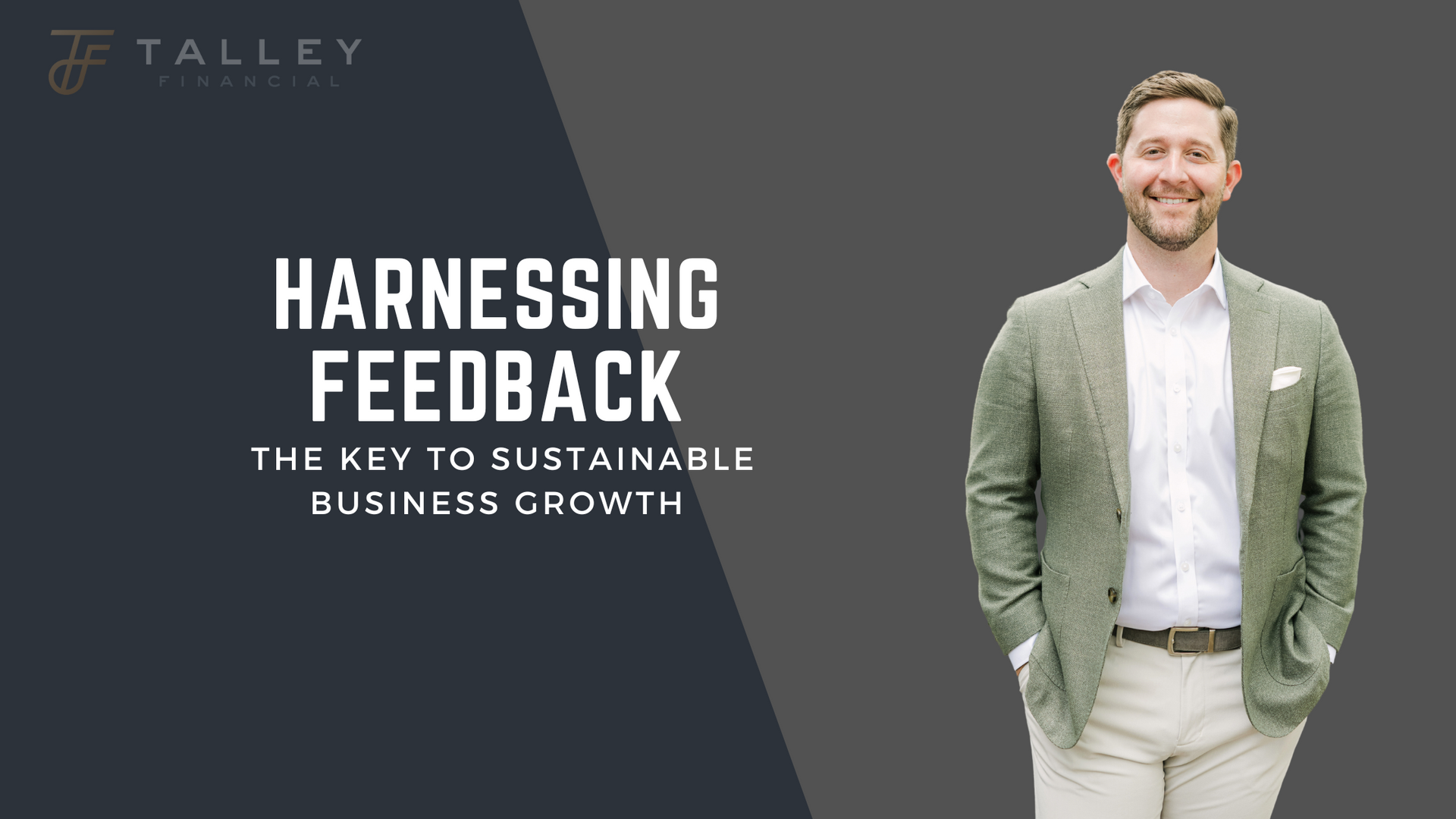Balancing Your Savings: Why Enjoying Life Now Matters in Financial Planning
Balancing Your Savings: Why Enjoying Life Now Matters in Financial Planning
By David Talley, CFP®
When it comes to financial planning, many people fall into the trap of viewing it as a relentless pursuit of saving every penny. You might picture someone stashing away every cent like a squirrel preparing for an eternal winter, but this perspective can possibly lead to a life lacking in joy and spontaneity. While securing your financial future is important, enjoying life in the here and now is equally essential. Welcome to the art of balancing savings with savoring life—because, after all, nobody wants to be the richest person in the graveyard.
The Misconception of Over-Saving
The saying "You can't take it with you" applies to your finances as much as it does to your vintage Beanie Babies collection. A study published in theJournal of Happiness Studies found that individuals who strike a balance between saving and spending often report higher life satisfaction. While preparing for the future is crucial, it's equally important to remember that joy isn't found in a spreadsheet. Adopting a mindset that values experiences over mere accumulation can make a significant difference. Consider the concept of
"experiential spending,"which suggests that spending money on experiences—travel, dining, hobbies—yields greater happiness than purchasing material goods. Investing in experiences can create lasting memories, contributing to a richer, more fulfilling life.
The Consequences of Missing Out
Over-saving often leads to regrets about missed life experiences, like skipping a vacation to save money and ended up binge-watching reality TV instead. TheNational Endowment for Financial Education emphasizes the need for a balanced approach to avoid waking up one day wondering why you didn’t seize more of life’s opportunities.
I had a discussion with a new client recently who was about to retire, and has three adult children, and a few grandchildren, living across the country. Their children have their own lives, and differing levels of financial success among them. My new clients were proud of their children for their independence, but as you might expect they treasure the time they do get to spend with their family - especially together.
Through a very precise retirement planning exercise, we were able to show that they could afford to pay for a giant beach house rental once a year for the next decade or so, that would allow their family to come together without worrying about who pays for what. Without going through the level of detail we went through in scenario analysis, there’s no way this couple would’ve believed they had “enough” money to do this, but I can tell you from firsthand experience that after just one of these trips, more was gained from spending this money than they ever would’ve gained from investing it at a slightly higher rate of return.
Why Financial Advisors Are Essential: Guidance and Expertise
Financial advisors are like the GPS for your financial journey—they can help you avoid detours into Disappointment Valley and guide you to Prosperity Peak. A survey by theCertified Financial Planner Board of Standards shows that clients often find greater financial satisfaction when they work with a professional. After all, who doesn't want someone to hold them accountable and make things happen? A financial advisor can help you create a personalized financial plan that includes your savings goals and your desire to enjoy life. They can help prioritize your spending so you still have the resources to create memorable experiences. Additionally, they can offer insights into investment strategies that boost your financial growth, enabling you to fund your adventures without compromising future security. Your financial advisor might even be the person who encourages you to book that trip to Hawaii. As Carl Richards says, "A financial planner's job is to prevent you from making big, life-limiting financial mistakes" (Richards, 2015). No one wants to live off ramen noodles in their youth, and look back only to realize that wasn’t completely necessary. A financial advisor can help you find this balance.
Creating a Spending Plan and Embracing Life’s Unpredictability
Consider working with your advisor to create a spending plan that allocates funds specifically for experiences and enjoyment. Whether it’s a monthly budget for dining out, travel, or hobbies, having a designated amount set aside can alleviate spending guilt and ensure you’re enjoying life along the way. Life is unpredictable. If you don’t realize this, don’t worry you’ll learn soon enough. TheAmerican Psychological Association points out that obsessing over future goals can lead to stress and anxiety, detracting from today’s happiness. Therefore, it’s crucial to plan for tomorrow without becoming overly concerned about the future.
Incorporating flexibility into your financial plans can help you adapt to life's uncertainties. Consider setting aside an emergency fund not just for unexpected expenses but also for spontaneous opportunities. This can be your "fun fund"—a financial cushion that allows you to say "yes" to exciting experiences without derailing your long-term goals.
The Importance of Mindful Spending
Mindful spending isn’t about reckless splurging; it’s about making strategic investments in happiness. Financial psychologist Dr. Brad Klontz suggests that understanding your financial psychology can lead to healthier habits and more satisfaction (Klontz, 2014). Sometimes, that latte is worth it—especially when it fuels your creativity for the day.
Tips for Mindful Spending
- Identify Your Values: Determine what truly matters to you—travel, family experiences, or personal development. Then, allocate resources accordingly.
- Set Spending Limits: Create and stick to a budget that allows for both savings and enjoyment.
- Track Your Spending:
Use apps or spreadsheets to monitor expenses, ensuring you’re aligning your spending with your values.
Finding Balance: Save Smart, Spend Joyfully
Balance in financial planning is like a well-made cocktail: the right mix of ingredients makes all the difference. Research fromHarvard Business School shows that spending on experiences rather than things often brings more happiness. So maybe trade those gold-plated cufflinks for a weekend in Paris. Your future self will be sipping espresso in a café instead of polishing jewelry.
A balanced financial portfolio includes a mix of savings, investments, and funds allocated for enjoyment. Regularly review your portfolio with your advisor to ensure it reflects your current priorities and goals.
The Freedom and Confidence to Spend Mindfully
Freedom in spending means making choices that enrich your life without emptying your wallet. With a clear understanding of your financial standing, you can make decisions that align with your personal values while keeping you out of the red. When you feel confident in your financial plan, you’re more likely to embrace opportunities for enjoyment. This financial freedom allows you to be spontaneous without the weight of guilt, knowing that you’ve prepared for the future.Having “permission” to spend on enriching experiences can be liberating. This shift in mindset allows you to live fully, embracing opportunities that bring joy and satisfaction—because sometimes, adventures are worth more than savings accounts.
Celebrate Small Wins and Act Now
Celebrate your achievements! Whether it’s achieving a savings goal or simply enjoying a lovely dinner out, recognizing these moments can reinforce the idea that life is about balance.
Reevaluating your saving and spending habits is essential for leading a fulfilling life. By finding a balance between saving for the future and enjoying the present, you can achieve peace of mind knowing you’re prepared for what’s ahead while savoring life’s current pleasures. Whether you’re nearing retirement or just starting your financial journey, consulting with a financial advisor can help align your finances with your life goals—ensuring that balancing saving for tomorrow and living today is not only possible but essential.
After all, nobody ever regretted having a little fun along the way. So go ahead, plan that trip, enjoy that dinner, and remember: life is meant to be lived!













